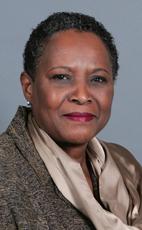Mr. Speaker, first of all, I am astonished that it is necessary to make such a motion.
In my opinion, and no doubt in the opinion of most members of our society, because our soldiers are required to work in such dangerous conditions, it follows that they must have the best possible equipment and the support they need.
Could it be that, for years, we have so neglected our basic duty to these soldiers, who risk their lives to preserve others' lives, that a motion is needed today in order for the government to provide them with an essential: quality equipment?
But we are not talking about updating the army's equipment annually to keep step with technological advances, even though I feel that this is necessary in many respects. What we are saying is that it is unacceptable that soldiers should be at the front with outdated or non-operational weapons or equipment.
However, this motion is warranted, because Canadian soldiers do not have the best weapons or the best equipment to do their jobs. An example of this would be the fact that Canadian soldiers were deployed to Afghanistan not long ago with the wrong type of camouflage. Such negligence puts them at greater risk and compromises their safety.
In addition, soldiers are increasingly fighting for their survival, especially during the increasingly dangerous missions they are called on to undertake. They need equipment adapted to these new situations and the specific risks they face. For example, the Iltis jeeps proved to be unsuited to the Afghan mission. We must not forget that this cost the lives of at least three soldiers.
Moreover, Canada lacks the clear foreign and defence policies that are needed before troops are sent on dangerous missions. With such policies, Canada could set specific parameters and more effectively plan for missions for which it would be called on to deploy troops. Preliminary studies would help in accurately determining needs, the type of assistance required from Canada, the number of soldiers we actually have and the appropriate equipment for conditions in the field.
It goes without saying that the conditions in Kosovo were not the same as they are for the soldiers in Afghanistan. Nevertheless, the lack of forecasting in our foreign policy and our defence policy indicates that the Conservatives are amateurs at this, just like the Liberals were.
We realize there are budgetary constraints. We are in favour of mechanisms that ensure that we have the best equipment at the best price, namely by having open and honest tenders. In June, the government did not respect this principle in every procurement contract. The Bloc Québécois would like to see the taxpayers' money used wisely, which is why it is recommending the implementation of adequate control mechanisms, including the review in committee of contracts worth more than $100 million. I want to remind hon. members that the former Canadian Alliance members, who now make up the Conservative Party, were in favour of this measure when they were in the opposition.
It is also important to plan for maximum spinoffs from the military contracts to benefit Canada and Quebec. The government's behaviour on that front has us concerned. It did not think it was a good idea to adopt measures to ensure that a significant portion of the planes would be made in Canada, in Quebec in particular, where 55% of Canada's aerospace industry is found.
Furthermore, we find that one way to minimize the need for military intervention is to focus on achieving the UN target of investing 0.7% of GDP by 2015 in official development assistance programs. This objective was adopted by the United Nations in 1970 and Canada promised to respect it.
Nonetheless, since the early 1990s, the official development assistance envelope has not stopped shrinking, going from a little less than 0.5% in 1991-92 to 0.25% in 2000-01. In 2004, Canada ranked 14th out of the 22 countries that make up the OECD Development Assistance Committee, when it was sixth nine years earlier.
In summary, weapons and materiel are only part of the equation. A good strategy on the ground, based on a proper concept of the international situation, is vital. Adequate development assistance is also a vital prerequisite. It seems clear that what is currently lacking in Afghanistan is not just equipment, but the means for reconstruction and programs likely to improve the living conditions of the average Afghan. That is what will ultimately keep the soldiers alive and make their mission a success.

